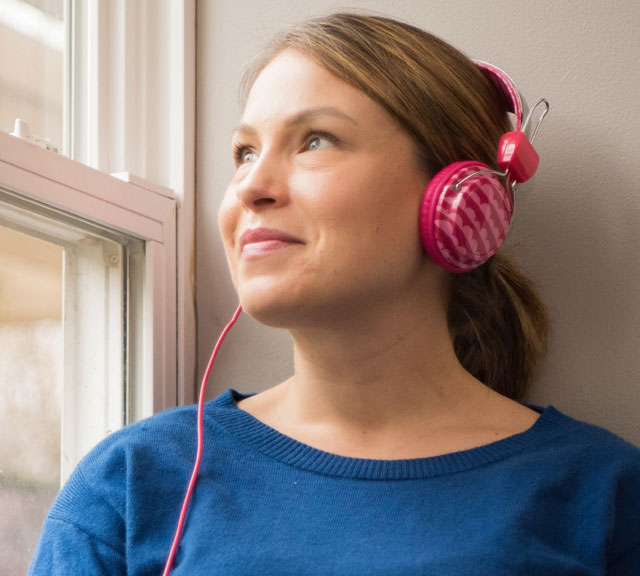Introverted? Depressed? How to Know

Answer a few questions and we'll provide you with a list of primary care providers that best fit your needs.
Have you ever wondered about someone at work, or in one of your social circles, who is quiet and reserved: Is she just introverted? Or could she be depressed?
“If you’re an introverted or quiet person, you don’t have the symptoms of depression (that require professional intervention),” says Beth Esposito, MS, LPCC-S, LSW, of Samaritan Behavioral Health. “If you’re an introvert, in general, you’re drained by all the interactions you’ve had during the day at work and you just need some quiet time to recharge,” she explains.
Quiet time, to an introvert, is “almost as vital as food and shelter,” she says. Extroverts, in contrast, draw energy from interacting with others.
Introverts Thrive on Downtime
“Introverts don’t want to socialize after a day’s work — that is their nature and there’s nothing wrong with that,” Esposito explains.
Recharged, an introverted person returns to work, primed to meet whatever the new day brings.
“With depression,” Esposito counters, “a person is less motivated and is despondent for an extended period of time. And they’re less productive. They’re not getting things done. You’re not going to notice that in someone who is introverted.”
Introverts succeed with others at work and social gatherings. They just can’t sustain social engagement for long periods of time without a break.
Look for Symptoms of Depression
“For depression, look for changes in behavior,” Esposito advises. For instance, weight loss or gain, changes in mood, or seeming loss of interest in previously enjoyed activity.
Other depression symptoms include:
- Difficulty sleeping or sleeping too much
- Appearing sad or being in a depressed mood
- Loss of energy or increased fatigue, often accompanied by slowed speech and movement
- Increase in purposeless physical activity, such as pacing or hand-wringing
- Difficulty making decisions or staying focused
- Feeling of worthlessness
- Thoughts of death or suicide – sometimes voiced
For a diagnosis of depression, symptoms must last at least two weeks, Esposito said.
Coming to Terms with Being an Introvert

Young introverts, “not yet comfortable in their own skin,” may think they’re not normal —that there’s something wrong with them.
“This is common among adolescents and college-age individuals,” Esposito says. “They may be in a social situation and their friends say, ‘Let’s go party,’ but they don’t feel like it. They may think, I’m weird, but it’s just their true self.”
Young introverts often do well in high school. They have a great day at school, then go home. There they have time alone to recharge and finish homework.
But this can change in college. “They’re put in a room with someone who’s outgoing and they have no time alone,” Esposito explains. Without quiet time, introverts can become agitated and may question what’s wrong.
No matter your age, if you’re an introvert, “you have to guard your quiet time,” says Esposito. “Go for a walk, release your pent-up energy, and you’ll immediately refuel and be more in control. This could just be for half an hour, just little pockets of time.”
For introverted students, she recommends, “Don’t study in a group, study in your alone time.”
“If you’re an introvert, in general, you’re drained by all the interactions you’ve had during the day at work and you just need some quiet time to recharge.”
When Someone’s Depressed
If you see someone around you who shows signs of depression, what can you do?
“Take the honest approach,” Esposito advises. “Ask, ‘Are you OK? Are you feeling depressed? Do you want to talk about it?’ They’ll see you care about them. Just ask. It’s the first step to helping them get professional therapy.”
She adds that some people recognize they’re depressed and reach out to a loved one or friend. “They just know they’re feeling differently.”
If they need professional intervention, she adds, “Offer to drive them to their appointment or keep their kids during the appointment. Let them know you support them in getting help.”
Introversion-Depression Link?
While introversion and depression are truly distinct, this doesn’t mean introverts can’t also be depressed. And they may be more likely to have depression that goes undiagnosed and untreated, Esposito says. “Often the fact that they’re alone more often than an extrovert, the symptoms of depression could go unnoticed. There’s a higher chance they could go longer without intervention.”
She adds, “When you’re introverted, it’s harder to ask for help than for someone who by nature is more outgoing.”
Answer a few questions and we'll provide you with a list of primary care providers that best fit your needs.
Source: Beth Esposito, MS, LPCC-S, LSW, Samaritan Behavioral Health; American Psychiatric Association; National Institute of Mental Health; Myers-Briggs Foundation




.tmb-card-head.webp?sfvrsn=680c0961_9)
